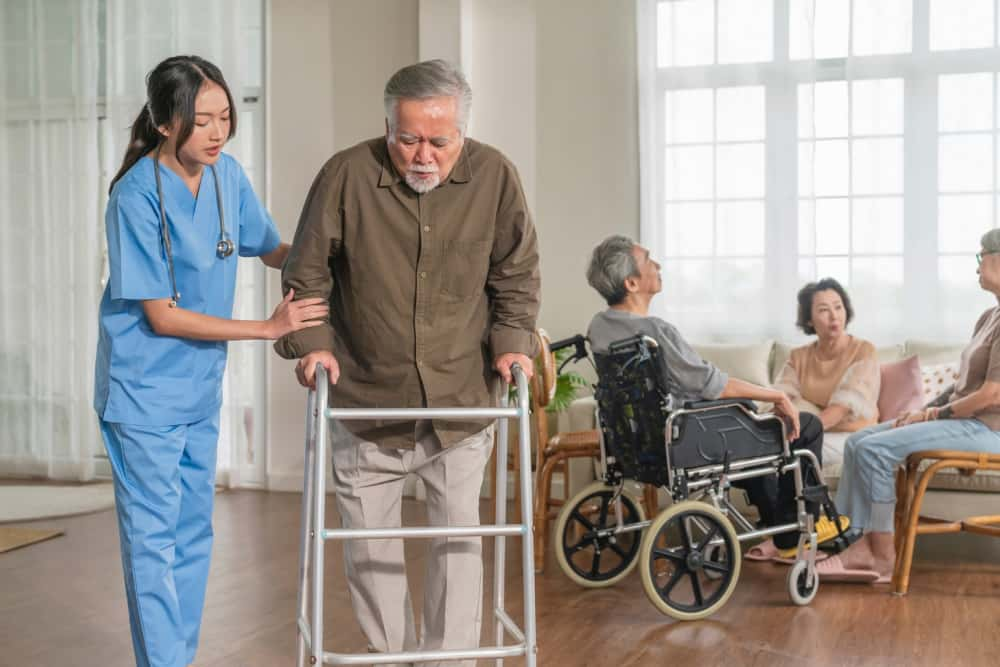Comprehensive Guide to Choosing the Perfect Senior Daycare Facility
This comprehensive guide provides essential strategies and detailed considerations for selecting the ideal senior daycare facility. From understanding different types of care centers to evaluating safety, credentials, and services, it helps families make informed decisions that ensure their loved ones receive high-quality, compassionate care tailored to their specific needs. Proper research and visits are emphasized to find a safe, engaging, and nurturing environment, supporting seniors' independence and well-being while providing peace of mind for families.

Comprehensive Guide to Choosing the Perfect Senior Daycare Facility
As our loved ones age, maintaining their social connections and receiving proper care becomes increasingly vital. Many seniors face loneliness or health challenges that require support beyond what family members can always provide. Enrolling them in a reputable senior daycare offers not only companionship and routine but also access to necessary health services and activities that promote their overall well-being. For families, selecting the ideal senior daycare facility is a critical decision that ensures their loved ones are protected, happy, and engaged. This comprehensive guide provides detailed strategies and considerations to help you choose the best center suited to your senior’s unique needs, fostering peace of mind and enhancing quality of life.
Understanding Different Types of Senior Daycare Facilities
Senior daycare centers are diverse, designed to cater to various needs ranging from social engagement to medical supervision. The first step in selecting the right facility involves understanding the kinds of care they offer. The three primary categories include social care centers, medical care centers, and specialized care centers.Social Care Centers: These centers primarily focus on enhancing seniors’ quality of life through nutritious meals, recreational activities, social interactions, and basic health check-ups. The environment is often lively, and the programs are designed to promote mental and physical activity in a non-clinical setting. They are ideal for seniors who are relatively independent but benefit from socialization and some health monitoring.
Medical Care Centers: These centers employ registered nurses and healthcare professionals who provide comprehensive health services. Regular health monitoring, medication management, physical therapy, and disease-specific care are common offerings. Seniors with chronic conditions or those recovering from illness often require such facilities to ensure continuous medical supervision.
Specialized Care Centers: Catering to seniors with specific health conditions such as dementia, Alzheimer’s disease, developmental disabilities, or mobility impairments, these centers offer tailored programs and professional staff trained to address unique needs. They provide a safe environment with specialized activities aimed at maintaining cognitive and physical functions.
Conducting Thorough Research on Potential Facilities
Before making a decision, parents and guardians should take time to research potential senior daycare options. Start by reviewing facility websites, brochures, and available promotional materials to understand their programs and services. Pay close attention to the variety of activities offered, meal plans, counseling or mental health services, and any testimonials or reviews from residents and their families. Visiting the facility in person provides invaluable insight into the environment, cleanliness, and overall atmosphere. Ask questions about staff qualifications, safety protocols, and health emergency procedures to gauge the center’s commitment to residents’ well-being. This due diligence helps in setting realistic expectations and avoiding future misunderstandings.Scheduling Interviews and Facility Visits
Online information is helpful, but firsthand visits are essential in assessing the quality and suitability of a senior daycare center. Schedule appointments with top choices and prepare a list of questions covering key areas such as daily activities, health assistance, therapy options, safety measures, operational hours, and meal quality. During visits, observe how staff interact with residents, the cleanliness of the environment, safety features, and the availability of amenities. Engaging with staff and even residents provides additional perspectives. Asking about staff credentials, staff-to-resident ratios, and how personalized care plans are developed ensures that your loved one will receive attentive and competent care. This process also helps to determine whether the environment is welcoming and supportive.What social activities are scheduled regularly?
Does the facility assist with daily needs such as hygiene, dressing, and medication management?
Are specialized therapies or mental health services available?
How often are health monitoring and assessments conducted?
What are the operational hours and flexibility for emergency visits?
Are nutritious meals provided, considering dietary restrictions?
Are there options for physical fitness or exercise programs?
Does the center have experience caring for residents with dementia or Alzheimer’s?
What are the qualifications and credentials of the staff?
Verifying Credentials and Track Record
Ensuring the facility’s legitimacy and reputation is crucial. Verify that the center complies with local regulatory standards, holds necessary licenses, and has current accreditation from recognized organizations. Checking online reviews, testimonials from families, and any complaint records helps assess their track record. A proven history of high-quality care and positive resident outcomes increases confidence that your loved one will be in safe hands. Additionally, visit the facility to observe hygiene standards, emergency preparedness, and overall maintenance, which are indicators of the center’s commitment to safety and quality.Understanding Scope of Services and Limitations
Clear communication with the facility’s management about the services provided is essential. They should be transparent about the levels of care available, criteria for service continuation or termination, and personalized care planning. Regular assessments and updates should be standard procedures. Understanding their limitations prevents future disappointments or conflicts. For instance, if your loved one’s condition requires a higher level of medical intervention, confirm whether the facility can accommodate such needs or if additional arrangements are necessary.Location and Accessibility
Proximity to home or your workplace is a practical consideration. Choosing a center close by allows for easier visits, reduces travel stress, and ensures quick access in emergencies. Accessibility features like ramps, elevators, and handrails are vital for mobility-impaired seniors. The environment should also be conveniently located without causing transportation issues for residents and visitors alike.Safety and Security Measures
Prioritize safety by inspecting hygiene protocols, emergency preparedness plans, and safety features. Check for hazards like uneven flooring, clutter, or inaccessible areas. Ensure the environment minimizes risks of falls and other accidents. Security measures such as controlled access, surveillance cameras, and staff security protocols are vital to protect residents from unauthorized entry or harm. Supervision during activities and meals, along with staff ability to handle emergencies, play a key role in maintaining a secure environment.Cost and Value Evaluation
While affordability is important, it should not compromise quality. Compare pricing structures, what services are included, and whether additional fees apply for extra care or therapies. A facility offering comprehensive services at a reasonable price provides the best value. Remember, investing in high-quality care ensures your loved one’s safety, happiness, and overall health, making it a worthwhile expense. Creating a budget beforehand helps narrow options and makes the decision more manageable.In conclusion, selecting a senior daycare facility involves careful consideration, diligent research, and thorough evaluation of options. Focus on compatibility, safety, staff credentials, and the scope of services offered. The right facility will not only support your loved one’s independence but also enhance their daily life with engaging activities and compassionate care. Taking the time to choose wisely ensures peace of mind for families and a better quality of life for seniors, helping them thrive in a caring and supportive environment.





